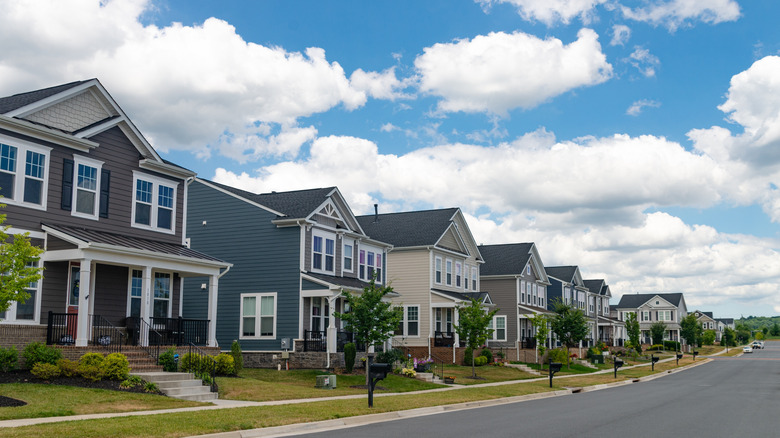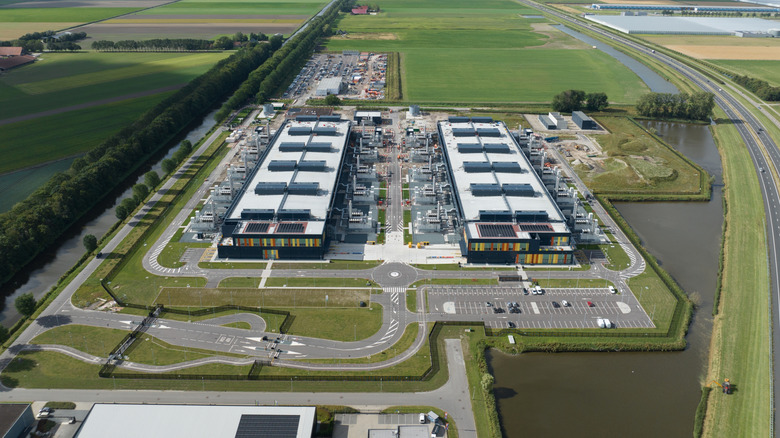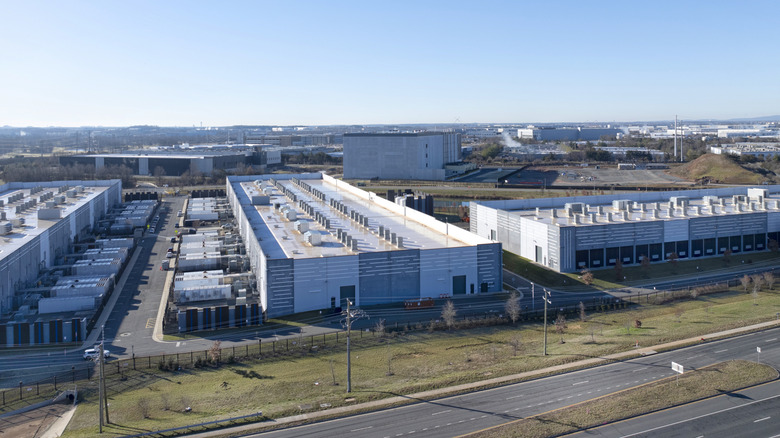
Everyone is familiar with the most important principle of real estate: location, location, location. Finding your dream home can be a complicated process, but technology is here to make it easier, right? Well... not always. Modern tech presents its own modern problems, as some Virginia residents have already found out the hard way. The culprit? Data centers.
Data centers are buildings that accommodate the servers and IT structure necessary to power computing and data storage, though they are increasingly being used to power technologies like AI and cryptocurrency . The word "building" may make you picture a power plant or warehouse, but data centers can get much, much bigger; hyperscale data centers can sprawl as far as 60,000 square feet.
Now, imagine if that was placed in your backyard. That may be an exaggeration, but for residents of Northern Virginia, it's not that far-fetched. Zoning laws are attempting to evolve to keep data centers out of residential areas, but some neighborhoods are still facing the possibility of, for example, a five-acre center being constructed only 60 feet from the neighborhood's boundary. No one likes living near a construction site, but people living near already-constructed data centers face an additional set of problems.
Read more: HGTV's Nate Berkus Shares A Small But Mighty Essential For Home Security
Living Near Data Centers Could Negatively Affect Your Utilities

Virginia is home to not only the highest concentration of data centers in the United States — it's the highest concentration in the entire world, with its facilities hosting 13% of data center capacity worldwide. A 2024 Joint Legislative Audit and Review Commission (JLARC) report found that data centers in Northern Virginia require 4,140 megawatts of electricity, which is over double the amount required by the next-largest data center market in Beijing.
This doesn't come without a cost to residents. According to the JLARC report, if data center growth continues unchecked, the power they require could lead to electricity bill increases of up to $37 more per month by 2040. So if you're looking to live in a region with cheaper electricity prices Ensure that the area isn't situated close to a data center or isn’t expected to have one planned soon.
These technological installations also require substantial amounts of water for cooling purposes. Major data centers can utilize as much as five million gallons of water each day, equivalent to the consumption of a town with 50,000 inhabitants. In Virginia, this would be comparable to the water usage of all cities not among the top 15 largest ones. A heightened demand for water from these data centers might result in reduced water availability for local communities, particularly during periods of drought.
Extra Issues Arising From Residing Close to a Data Center

Drains on electricity and water aren't the only issues data centers' neighbors have to deal with. There's also pollution, especially from the data centers' backup generators. Most data centers have two sets of generators to keep them running in case of a blackout, and these generators typically run on backup batteries or diesel. These are tested about once a month for anywhere from five minutes to half an hour. This amounts to less than 100 hours a year of testing, but it can still release diesel exhaust, nitrogen oxides, and carbon monoxide into the surrounding air.
The generators bring up another concern: noise issues. Backup batteries aren’t quiet, and constructing new data centers isn’t either. According to the JLARC report, the noise has been detrimental to nearby residents. As a result, Virginia’s zoning regulations aim to address this problem by mandating noise assessments and ensuring data centers are enclosed to reduce auditory disruption. However, since these zoning rules differ from place to place nationwide, there’s no assurance that relocating closer to one of them would mitigate the noise impact. decrease the noise of living in a loud area .
To put it briefly, your ideal house might lose its appeal if situated close to a data center. Keep this in mind particularly when considering areas in states known for having many such facilities, such as Virginia, Texas, and California. If unsure, utilize an internet-based data center map to verify the proximity of these centers to where you plan to live.
Liked this article? Subscribe now to receive exclusive home tips from experts, DIY guidebooks, and design inspirations. House Digest newsletter !

No comments:
Post a Comment